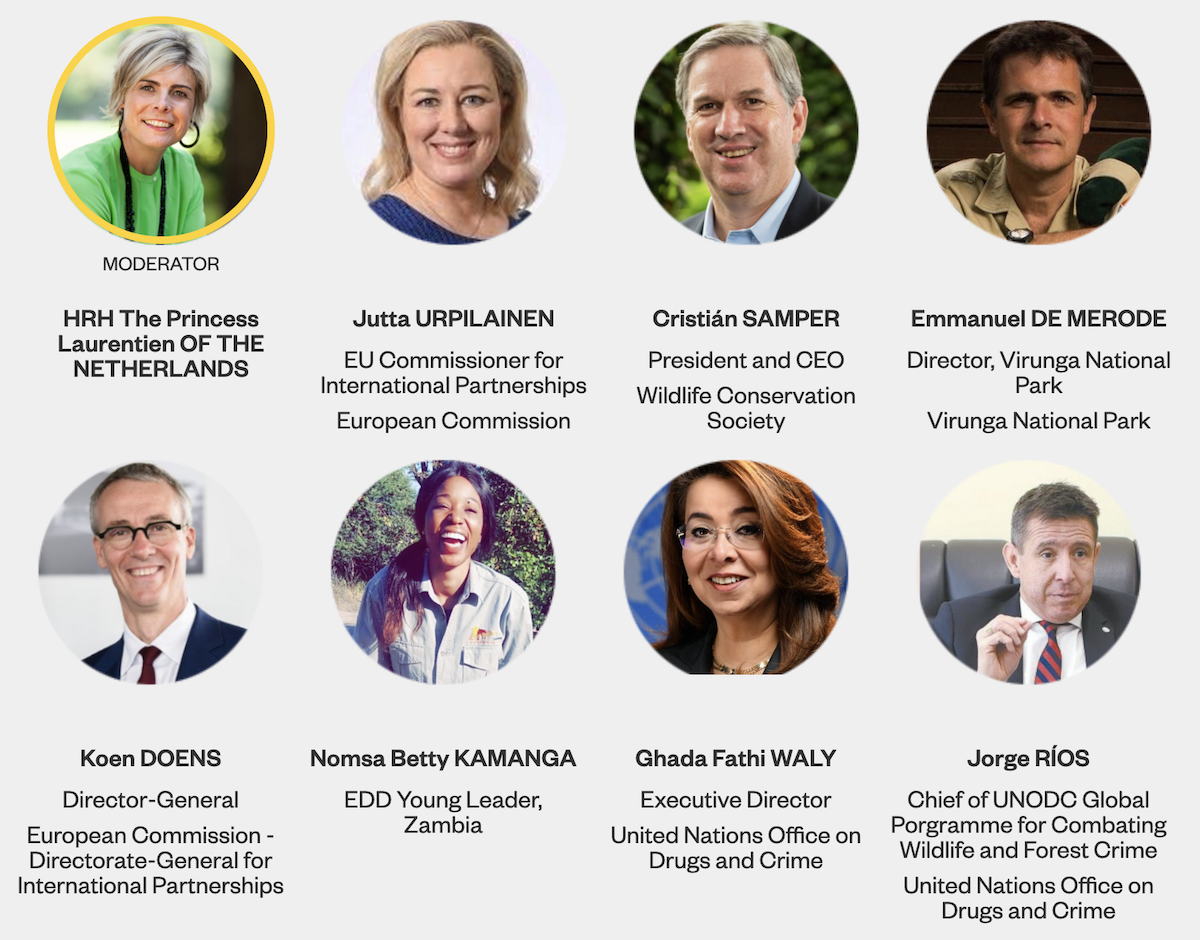The planet's wildlife is under intense pressure from human activity and over-exploitation. Illegality, crime and corruption have a dire impact on deforestation and the loss of multiple wild species, affecting whole ecosystems, contributing to climate change, and negatively impacting trade, economic development and security. The weak governance and lack of adequate responses have exacerbated the poaching crises in many biodiversity hotspots affecting both wildlife and communities dependent on natural resources.
In this high-level panel held on 16th June 2021 and organized by UNODC, speakers discussed real on the ground impact of wildlife trafficking, the links to security, the latest trafficking trends, the challenges in Asia to curb wildlife crime and the role of the Green Deal in addressing these threats to biodiversity through integrated responses.
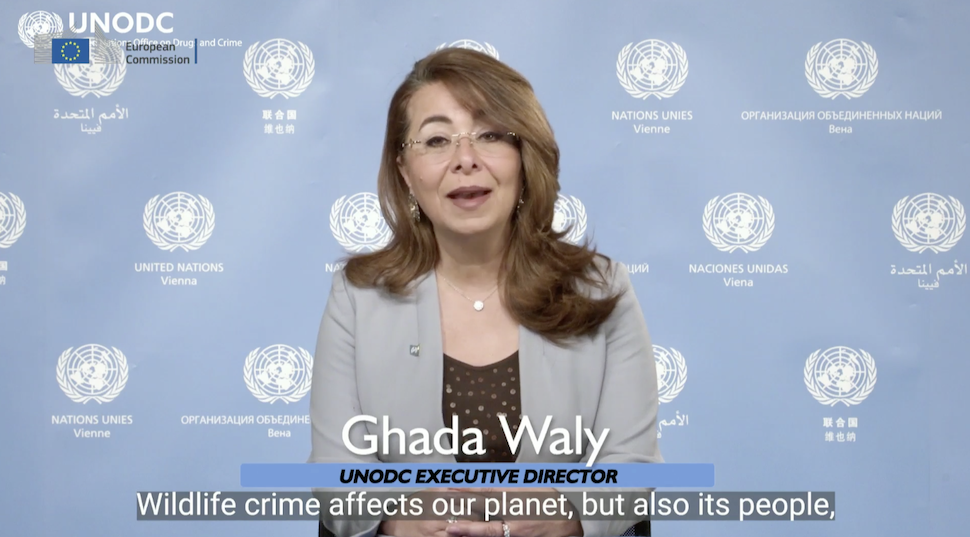
Ms. Ghada Waly, UNODC Executive Director, noted that UNODC has supported 40 countries with legislative assistance, building enforcement capacity, and facilitating international and inter-agency cooperation to dismantle criminal networks and disrupt trafficking. Ms. Waly highlighted the need to address wildlife crime as a serious form of organized crime by making use of the international instruments at our disposal, and harmonizing legislation across regions to prevent traffickers from exploiting gaps.
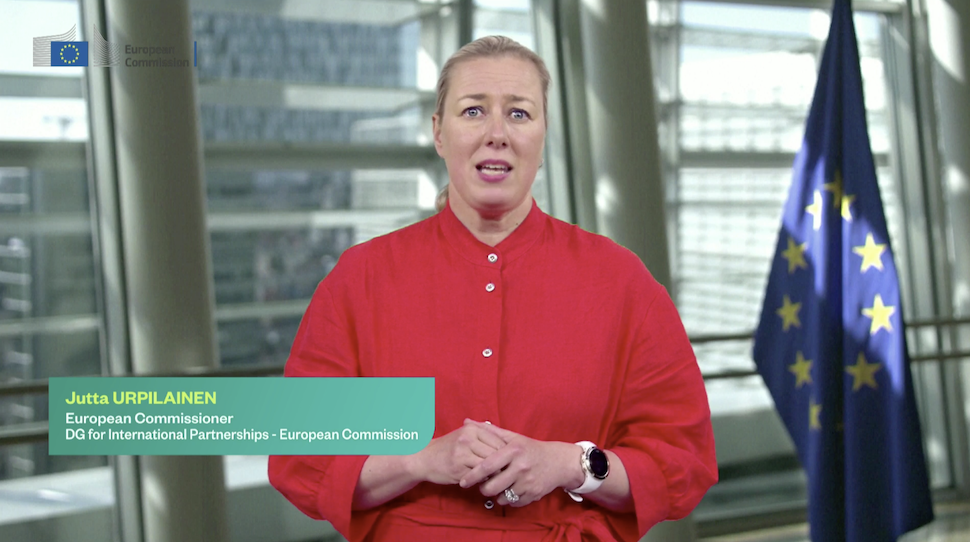
Ms. Jutta Urpilainen, EU Commissioner for International Partnerships, emphasized the need for renewed efforts and noted that business as usual is not an option when it comes to fighting criminal networks involved in wildlife and forest crime. She mentioned the recommendations prepared for the EDD by the high-level group (HLG) of experts, which underline the importance of protecting wildlife: "Its trade and consumption needs to be legal, sustainable and safe".
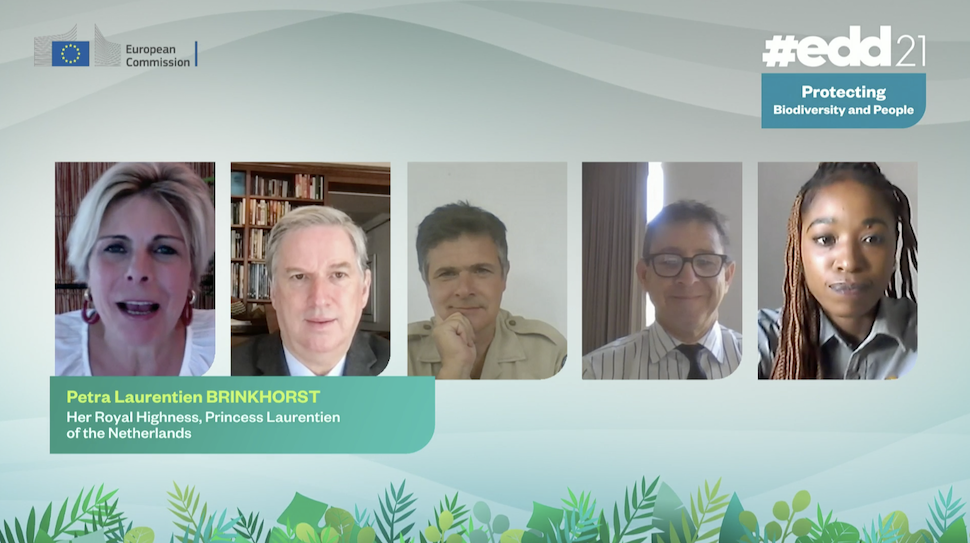
HRH Princess Laurentien of the Netherlands called on the international community to rethink and reposition the urgent battle against wildlife crime, through true connection and cooperation at all levels to make this a top priority in the broader sense of climate change, nature conservation, health and many other aspects included in the Green Deal. She also highlighted the need to bring the private sector and the judicial system into the conversation, as well as addressing the role of banks in wildlife trafficking criminal networks.
Dr. Cristián Samper, President and CEO of the Wildlife Conservation Society, highlighted the international connections of wildlife trafficking and the importance to disrupt transit routes, including through the EU. He commended the EU for its investments in partner countries to help address the entire trade chain—from direct exploitation from the wild, to traders, trading hubs, destinations, and consumer markets. He also stressed the importance to adopt a 4th protocol under UNTOC that focuses on transnational wildlife crimes. Speaking about pandemics, Dr. Samper noted that 70% of all emerging infectious diseases are of zoonotic origin. To prevent them, we need to manage ecosystems better, reduce interface between humans and wildlife, and significantly reducing wildlife trade.
Prince Emmanuel de Merode, Director of the Virunga National Park, shared his experienced on first-hand crime, corruption, and violence involved with wildlife trafficking. He highlighted the importance to involve local communities in any efforts to prevent poaching.
Mr. Koen Doens, Director-General of DG International Partnerships, European Commission, noted that the Covid-19 crisis put the magnifying glass on the connection between global health and the protection of forests and biodiversity. He stressed the importance of on-the-ground initiatives but also global action, such as the International Consortium on Combating Wildlife Crime, in tackling wildlife crime. Mr. Doens also insisted on not having to choose between green and growth: "The issue of competition between priorities doesn't count on the ground. We have seen that productivity and sustainability should go hand in hand."
Ms. Nomsa Betty Kamanga, Young Leader from Zambia, shared her experience as a young leader working in the conservation of wildlife while promoting the role of women. She raised concerns that not everyone seems aware of the implications of wildlife trafficking for human diseases: "Covid-19 should be a wake-up call."
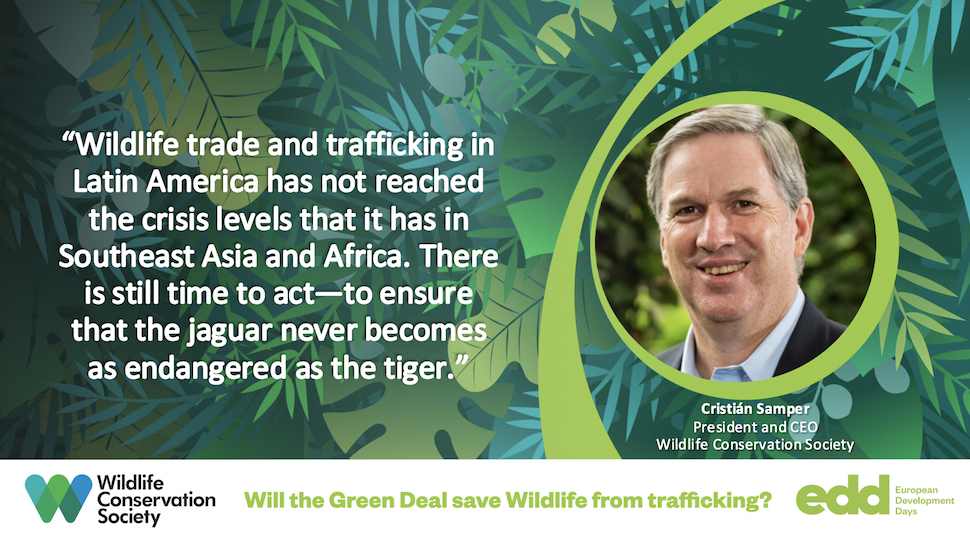
On Twitter:
